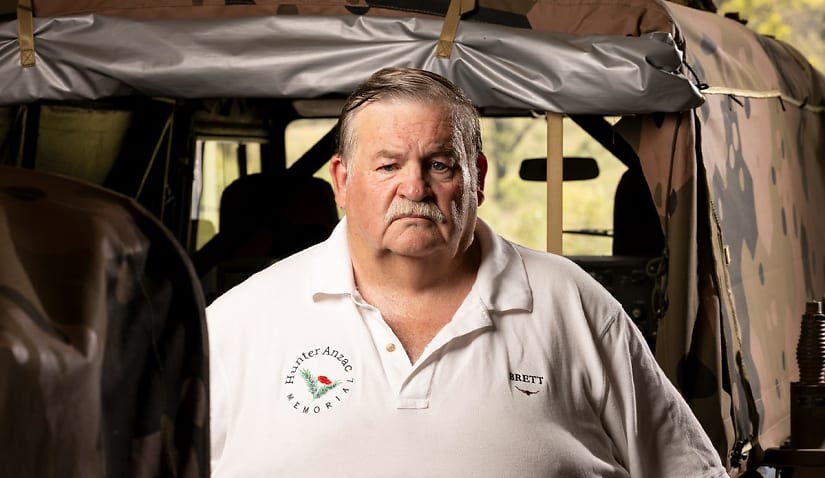Suicide, homelessness, unemployment, mental illness – for most Australians, this is the stuff of worst nightmares. For many veterans, it’s a reality that can all too easily lead to incarceration, writes Brett Wild.

After facing the unimaginable, Australia’s veterans return home to a world that turns a blind eye to their sacrifices and struggles.
This number represents the failure of our justice system on our veterans.
When veterans are discharged from the military, they face the daunting and difficult task of adapting to civilian life. After years or even decades spent in a military system that winds up its personnel like a spring toy, veterans are expected to wind themselves down. At the same time, they are processing experiences and traumas that no human should have to face.
For veterans who find themselves in the court system, there is no consideration for these unique and incredibly complex circumstances. Our system’s cookie-cutter approach fails to recognise what research has proven to be true: violence and mental illness – two factors that often lead to incarceration – are the result of complex trauma combined with very little access to professional help. When we incarcerate veterans without looking beneath the surface, we subject them to yet another injustice.
This isn’t about excusing poor behaviour or advocating for the legal system to turn a blind eye when veterans disrespect the law. Instead, it’s about recognising our broken system and acknowledging how we can help the people who have sacrificed so much for our country.
We’ve seen glimmers of hope for veterans facing incarceration, such as the recent decision by a Queanbeyan magistrate not to convict an ex-serving member of the Air Force who was struggling with mental illness. The compassion and common sense shown by the magistrate meant that the veteran was able to check himself into a mental health treatment program – something that certainly wouldn’t have been possible if he had been sentenced to prison.
But it shouldn’t be up to magistrates to offer flexibility. We need a whole-system approach to make a difference.
Research shows that 28 per cent of all adult prisoners end up back in the prison system. By incarcerating veterans rather than addressing the social and emotional issues that led them to offend in the first place, we only continue the cycle of suffering.
Rather than throwing the book at veterans, our legal system should consider their circumstances and provide tailored pathways or support to address their needs. Connecting them with mental health professionals, substance abuse programs, or homelessness organisations can minimise the chances of reoffending and help them get their lives back on track.
Taskforce Veteran recently discovered how this approach could benefit veterans when we connected with a Darwin-based Navy veteran who was experiencing a mental breakdown. This veteran’s experience of being stuck on patrol boats for eight years left him struggling with isolation and feelings of resentfulness. Eventually, he became so resentful and unwell that he began disrespecting the law.
Without any family or community support in Darwin, he was eventually medically discharged and relocated to the Hunter region where Taskforce Veteran is based. If he had stayed, he most likely would have ended up in trouble with the law. However, by removing him from an area that held so much pain and trauma and providing the necessary support to address his core issues, he was able to set himself on the right path.
In theory, the Department of Veterans Affairs (DVA) exists to provide this type of support. However, poor communication and understanding of resources means that veterans often find the system frustrating to navigate and are unable to access the support they need. It’s simply not enough to expect one department to adequately help hundreds of thousands of veterans, especially one that has been ill equipped to do so for many years.
This is why we at Taskforce Veteran call for a whole-system approach to supporting and rehabilitating veterans, and that starts with our legal system. Only by recognising the unique experiences of veterans can we begin to provide them with the support they need to get their lives back on track.
Brett Wild is the founder of Taskforce Veteran, which provides proactive support to veterans and their families during the challenging transition to civilian life. He spent more than a decade in the Australian Defence Force.